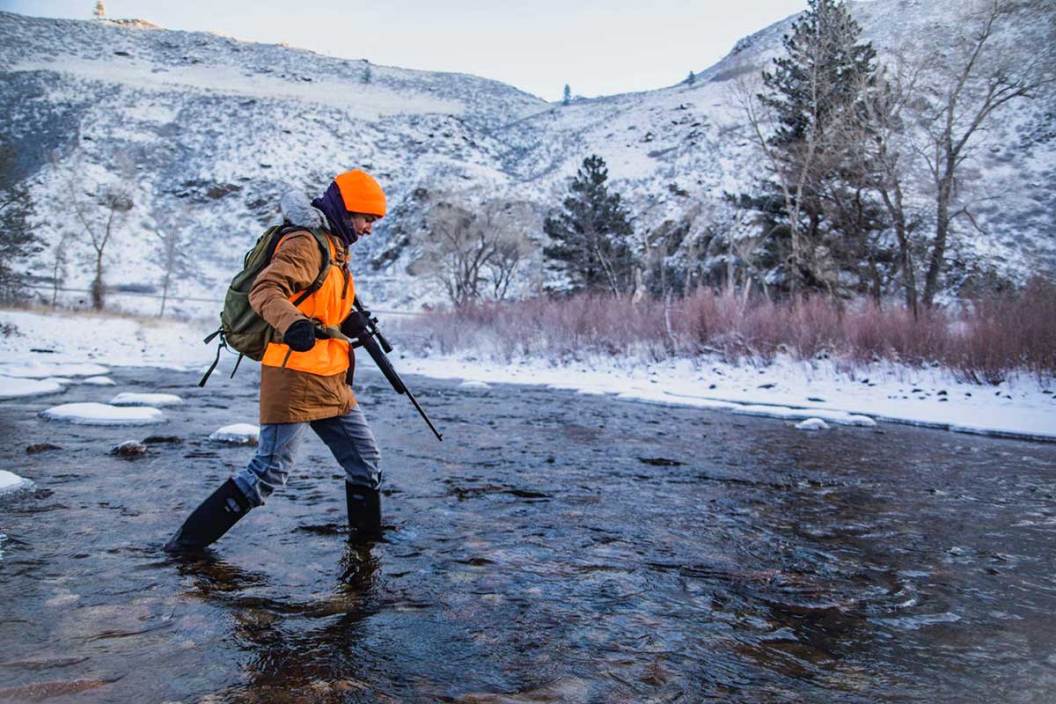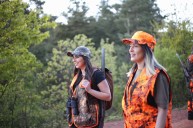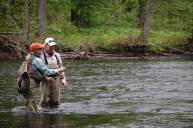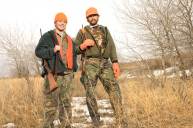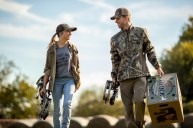Historically, guided hunting and fishing trips haven't been educational opportunities. Customers tend to purchase guided trips specifically to fill big game tags and catch huge fish. This is all fine and dandy; however, at Uncharted Outdoorswomen, our goal is to take things a step further. At Uncharted Outdoorswomen events, we still celebrate landing fish and putting wild meat in the freezer, but as guides we make a point of teaching you how to do these things on your own. Whether you're on a pheasant hunt or fly fishing for rainbow trout, your guide will talk you through what they're doing, why they're doing it, and how you can do it, too. Additionally, our events aren't solely focused on hunting and fishing. We also offer classes on horsemanship, climbing 14ers, archery and firearm skills, fly tying, conceal carry certifications, and so much more. Every Uncharted guide puts a significant amount of time and effort into planning their events. Besides the more typical tasks completed by guides like marketing trips and client outreach, below is a list of Uncharted-specific roles I fill as a female guide for my one-of-a-kind outfitter.
1. Making Sure Every Client Gets What They Need
https://www.instagram.com/p/Cdnpfd5FD0r/
Many times have I shown up at an educational event only to feel like I didn't exist. Whether it was during hunter education, a rifle safety course, or a turkey hunting workshop, I've experienced not being called on, having the instructor or other students doubt my ability, and just being glanced over.
This will never be the case for Uncharted Outdoorswomen clients. We make a point of introducing ourselves to every person who attends one of our events and taking the time to connect with them. We take every participant seriously and are always around to answer questions, provide guidance, and work one on one.
2. Ensure Everyone Learns Something New

Gabriela Zaldumbide
Most folks who attend Uncharted Outdoorswomen events are relatively new to hunting, fishing, and the outdoors. In these cases, it's easy to make sure that every client walks away having learned something new.
However, even skilled outdoorswomen attend our entry-level events simply because they want to meet other like-minded women in their community. Oftentimes, I find they still have an easy time learning something new. Sometimes, they're reminded of a technique they've forgotten, learned a new way to do something they already do, or met another participant who opened their mind a little. I have yet to chat with a client who didn't learn something new!
3. Empowering Women
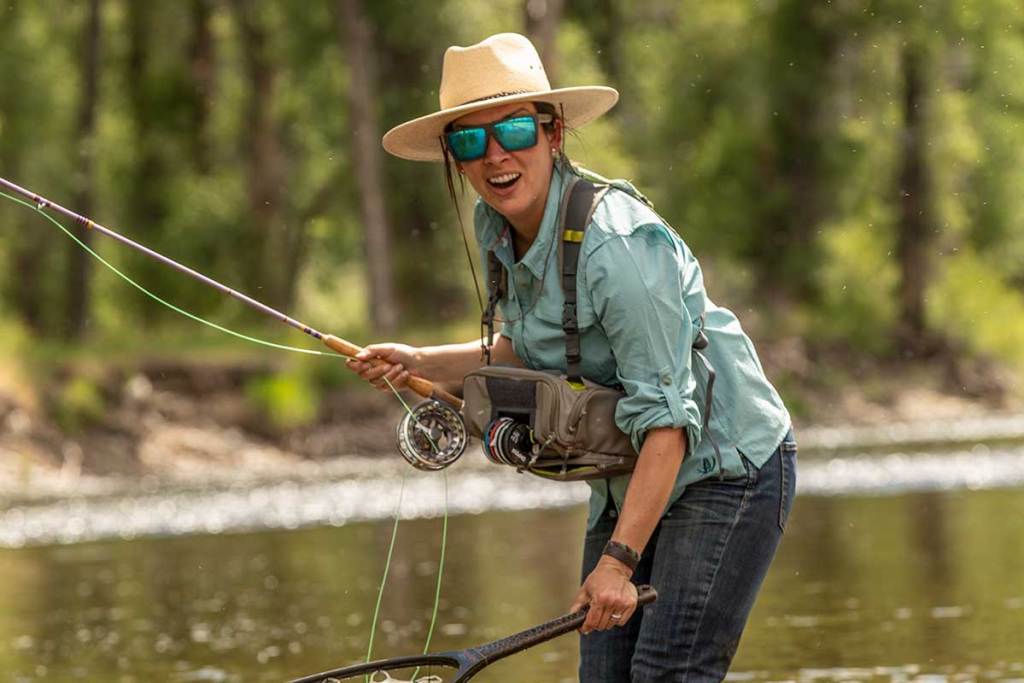
Erin Crider/Uncharted Outdoorswomen
This is what Uncharted Outdoorswomen is all about. Erin Crider founded Uncharted on the basis that she wanted to empower women and build their confidence outdoors. We like to say that we hope our clients don't have to hire us again because we've taught them everything they sought to learn, but also feel like they have a community to go back to learn other outdoor skills, connect with, and explore the outdoors with. To me, this is the most satisfying part of my job.
4. Knowing My Local Community
https://www.instagram.com/p/CbDDKJIOFqO/
This role is a little less obvious, but it helps me be a more effective guide. By knowing my local community, I have a better understanding of the types of educational events women in my area are interested in. It's also easier to have repeat customers for different types of events because, for example, I've chatted with women at my archery clinics so I know they're also interested in learning about fly fishing.
Knowing my community also helps me know when and where to advertise my events to reach my audience. Where I live, our local newspaper and Facebook marketplace are go-to spots for event promotion.
I also take the time to get to know my local state game agency employees, federal agency employees, and other outfitters in my area. This way, when I go to apply for permits or utilize a new area, I know who to talk to as well as the other folks who use that spot to guide others.
5. Being Prepared for Every Event
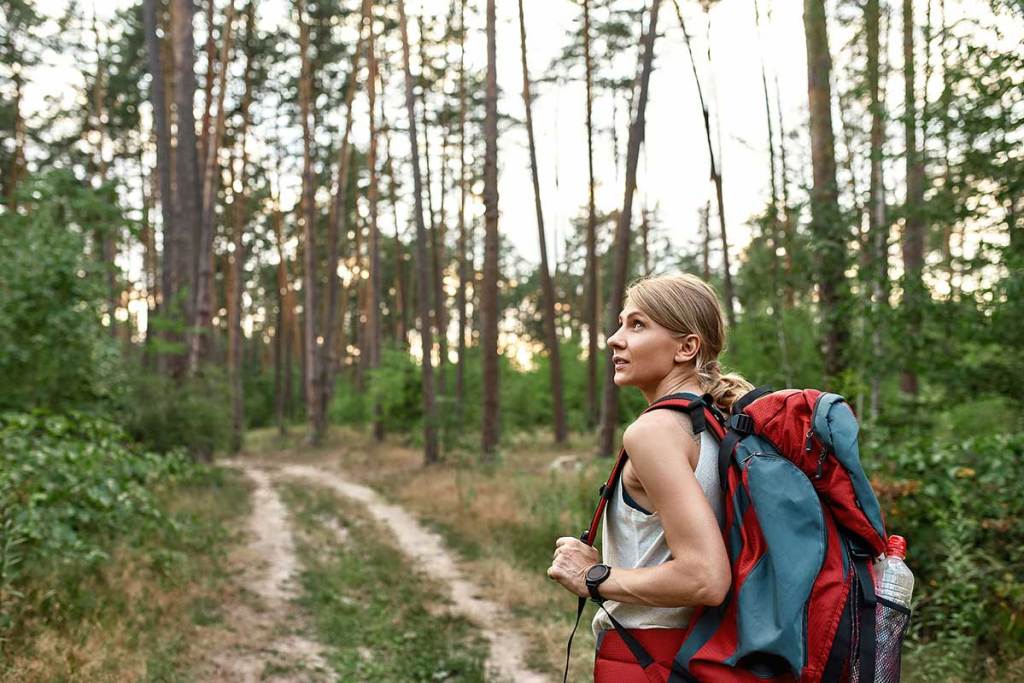
Running educational events is easier said than done. However, it really pays off when you know your events are as high-quality as possible.
I've noticed that it's really important to have the right gear when hosting educational events outdoors. Between the first aid kit, extra fishing rods, enough firearms, camo, blaze orange, and other gear, it's a lot to provide for first-time hunters and anglers. Being prepared on the gear front doesn't only mean your clients will be more comfortable, but they'll have more opportunities to learn the longer they have a rod in their hand or a shotgun on their shoulder.
I also take the time to partner with other instructors that can help fill my knowledge gaps. For example, my pistol instruction partner Dan has an extensive military background and knowledge of firearms. However, I'm the one with the business knowledge, marketing expertise, and access to women-based outdoor communities. Together, we make a great team.
It's worth saying that it's always a great idea to check the weather, locate the bathrooms, and have snacks and water for your clients, too. By making sure you have the right gear, right instructors, and appropriate weather and other outdoor conditions, you're setting yourself up for success.
6. Finding the Right Locations
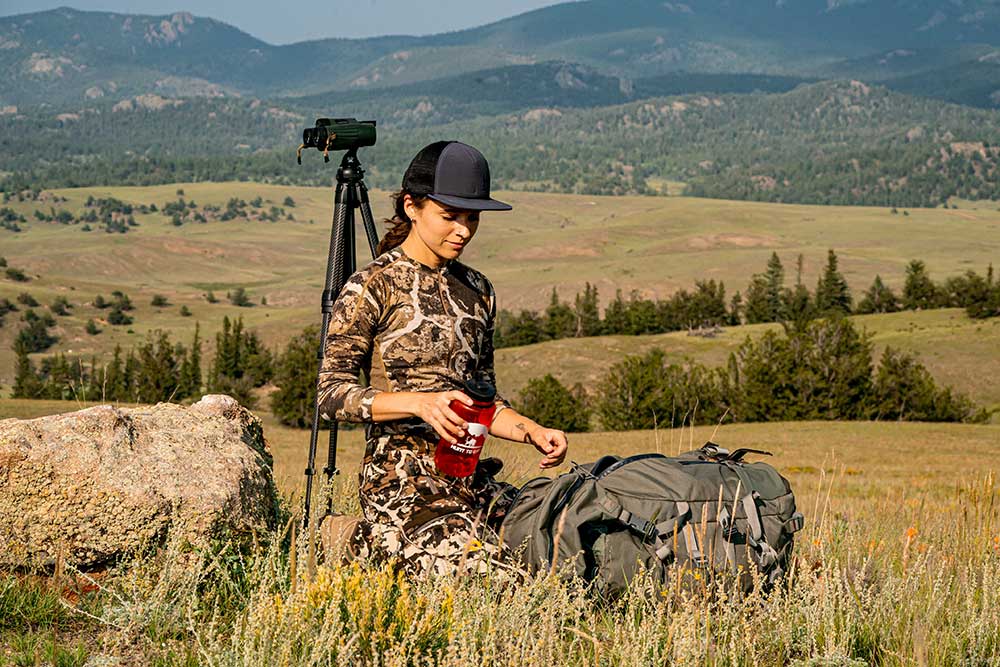
Gabriela Zaldumbide
It's not always easy to find the perfect location for your events, but it's worth it to take the time to do so. Whether you need a classroom, meeting room, shooting range, shoreline access, or National Forest access, it's important to do your research and find the right location for your event.
I recommend talking to your local gun range owner, rentable classroom or lecture room manager, and public land managers prior to you hosting events. By doing so, you've already begun a healthy relationship with the person or organization you're going to need to ask for permission from to access said locations. Who knows; maybe even an official partnership or deal will pop up after you introduce yourself and what you're all about. This happened to me after I met my local gun range owner and he offered me a deal on the rental price for the shooting facility.
7. Making the Outdoor Industry More Inclusive
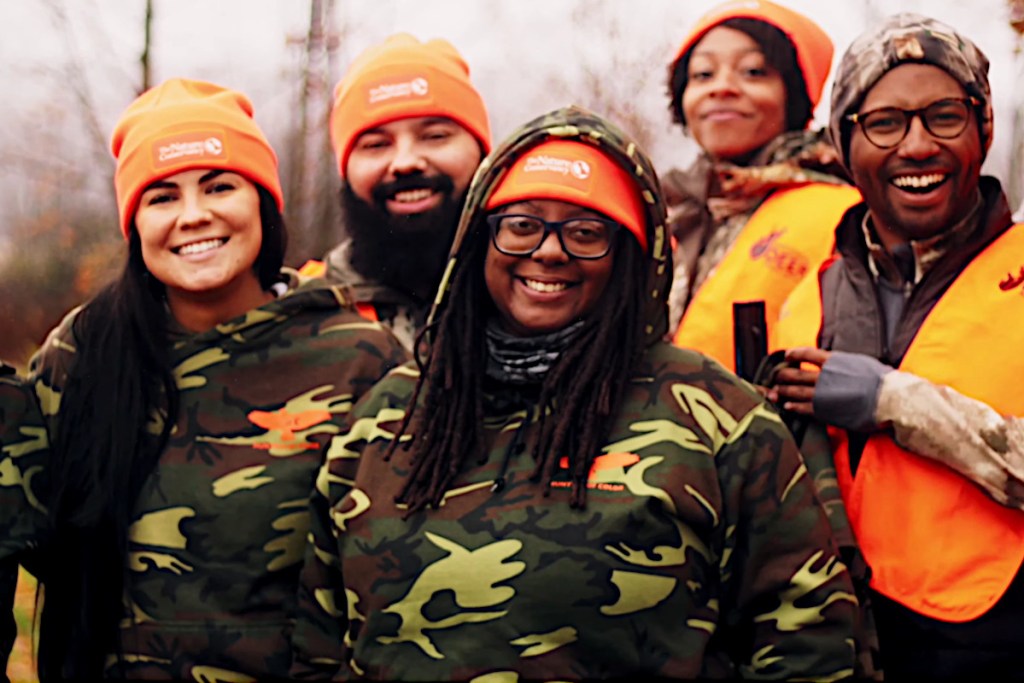
YouTube/Hunters of Color
The outdoor industry has historically been notoriously exclusive. Affluent white folks have had the privilege of access to outdoor knowledge, skills, and resources for several decades. However, the tables are turning. Uncharted Outdoorswomen helps nudge the needle towards being more inclusive in the outdoors. By empowering women this way, my fellow guides and I are working to make the outdoor industry a more inclusive and diverse place.
Like I mentioned before, being a guide for Uncharted Outdoorswomen is so much more than putting fish on the end of the line or a limit of pheasants in the bag. It's about empowering others, building my own confidence as a guide, investing in my local community, and helping make the outdoors for everyone.
